Yang Zhifa, 76, soldiers on amid terracotta warriors
Updated: 2014-12-09 15:40
By Zhao Xu(China Daily USA)
|
||||||||
Yang Zhifa has three claims to fame.
Written on a large piece of paper, framed and hung on his sitting room wall, they are: man who discovered the Qin terracotta warriors, China's first professional autograph signer and the Chinese farm worker who has met the largest number of foreign leaders and dignitaries.
While the first claim is a statement of a fact that happened 40 years ago, the latter two neatly sum up the life of the man following that fateful day in March 1974.
"I was in the middle of digging a well with two fellow villagers as my hoe hit the pottery head of a warrior," said Yang, pointing to some long ago-painted illustration pasted on the wall right above his sofa. "It's all there – how I made the discovery. See it for yourself."
Four decades later, the discovery of the terracotta warriors has impacted the lives of villagers and the region as a whole in a variety of ways. While some have benefited, even profi ted, others have not.
Yang's colored illustration has slightly faded with the passage of time. And a visitor is left with the impression that the elderly gentleman, aft er repeating the same story for so many years, is truly bored with its retelling.
"Everything belongs to the country," he said, taking a deep drag from his long smoking pipe, a relic in its own right.
But 2000 years ago, the terracotta army in Xi'an, capital city of northwestern China's Shaanxi Province, belonged to one man. That man was Ying Zheng, also known as Qin Shi Huang, or "the First Emperor of the Qing Dynasty".
Upon ascending the throne at 13, the boy emperor embarked on a seemingly unstoppable quest for greatness – both in this world and the next. By the time he died, around 210 BC at the age of 50, he had united China, and standardized the national writing system, as well as the units of currency and measurement. He also had built the first sections of the Great Wall and the Mausoleum, not without deploying a formidable subterranean army to guard it.
And if the conquering emperor aimed for eternal peace in his aft erlife, his dream has been unwittingly disrupted by Yang.
Despite seeing fewer and fewer reporters over the past few years, the 76-year-old has remained a minor celebrity among his fellow village men, who pointed out for a visitor the dragon-decorated door of his two-story house. "I'm happy. People around get rich thanks to the fi nd," Yang said.
He Peilin, a farm worker who has made a fortune not from the land but from his kiln, might agree. Th ree decades ago, in the initial years following the warriors' discovery, He had taken part in the grueling excavation work. According to the 72-year-old, he was digging right beside Yuan Dingyi, renowned archaeologist known today as "the father of the terracotta soldiers".
"Faced with a severe shortage of hands, we recruited in relatively large numbers from the local farm workers, before putting them through basic training," said Yuan, 82. "Some were indeed fast learners and acquired great expertise over the years."
While most stayed with the archaeological team until age prevented them from work, others, including He, had found enough reason to leave. "I worked there for ten years, but the pay was far from being handsome: I remember getting 1.72 yuan (0.28 US dollars) a day in year 1976," he said. "So eventually I thought: maybe I can try something else."
But it was by no means a drastic departure. Renting a patch of roadside land from a fellow villager, He built a kiln to fi re his own warriors. It was 1984. China's dalliance with the market economy had grown into a serious love aff air, and the museum was starting to see huge fl ocks of foreign visitors.
"Orders soon came in, mostly from the United States and Europe, Germany and Switzerland for example," said He. "As far as I know, they bought the pottery fi gures for hotel decoration and exhibition display." As demand soared, He built another kiln in 1989, then another one in 1990. The last and fourth one was built in 1993.
In the meantime, the size of his creations had grown steadily.
"The fact that I had handled a lot of warriors – all broken – doesn't mean I can create one from scratch, without suff ering many failures. I started with ones measuring at a mere 15 centimeters. But by 1989, I had succeeded in making full-length ones, some as tall as two meters," said He, proudly surveying the front yard of his own workshop, where warriors in diff erent ranks and wearing diff erent uniforms and expressions stood in the warm autumnal sun.
One man stood out. He's more portly than the others, or courtly as his creator might say, with falconing eyes, long beard and no armor. "This is Emperor Qin Shi Huang, in common imagination I suppose," said He, who admitted to have borrowed the image from history cartoons. "The man behind the terracotta warriors is the only one I can take liberty with."
The tall ones sell for somewhere between 1500 yuan (244 US dollars) and 3500 yuan (570 US dollars) depending on the details. Early this year, He sold 100 pieces at one lot to a Beijing-based client. "They were placed in a ‘movie city' on the capital's outskirts."
But not every warrior minted by the man could reasonably hope for a fl eeting appearance on the screen, big or small. More oft en than not, they appear in somewhat unlikely places, for example, the front door of a Shaanxi-style restaurant, where the clay soldiers watched as diners slurped in a bowl of the area's famous noodles.
"They were replicas of art, before they were everywhere," said Li Bo, who operated another warrior-producing workshop not far from He's. "Business reached its peak in the mid-1990s. From there, it took a dip and has so far showed no sign of recovery."
The 48-year-old blamed competition and inferior quality for the situation. "You can find ten workshops in the vicinity, and there are a lot more elsewhere, even outside of Shaanxi," he said, while filling the sticky yellow mud into the plaster mold of a warrior's torso. "Some stick to certain standards while others just want quick money. These days, a replica terracotta soldier is a byword for being cheesy."
Adding to this the rising pay for workers, Li may indeed have a hard time. But not everyone is sympathetic. "They had their days," said Yang Xiaodong, a fellow villager of Li. Before 2003, they lived in diff erent villages.
"Back then, people from the three neighboring villages were brought together to form the Qinyong Village, or ‘Village of Qin Terracotta Soldiers. Th is was due to the expansion of the mausoleum museum," he said. "My estimation is ... more than 100 households had been relocated."
The removal is necessitated by the protection of the countless treasures, some still to be found in the region, said Zhou Tie, the museum's lead conservationist.
"Internationally, it's considered ideal for local people to live in harmony in a historic zone, with the identifi ed antiques," said the 56-year-old. "But in our case, the existence of human activities had caused tremendous stress on these objects."
Aft er nearly a decade living in her house near the museum's park car, Huang Biyun is still struggling. "When we moved here, our farm land was expropriated. Compensation was off ered, but it was a tiny fraction of the amount needed to build our new house on the allotted land, based on their ground plan," she said, standing in front of a row of identical-looking semiattached houses. Similar ones are more likely to be found in the rich suburbs of Beijing. "I borrowed nearly 100,000 RMB (16,300 US dollars) from my relatives."
The initial anxiety is followed by confounding sense of loss. "To deprive a farm worker of his land is to put him out of his skin," said the 43-year-old, who now waits at the table in a small restaurant nearby, for a monthly salary of 1,000 RMB (163 US dollars).
"We were first told to cash in on the constant fl ow of tourists and develop catering businesses. But the plan didn't work out in reality."
Huang said among the museum's more than one million annual visitors, very few have made the detour to patronize the surrounding businesses. "The fact that the museum is only forty minutes' drive from the city center has effectively killed our hope. One fi nds little reason to dine here, in our less-than-glamorous eateries, let alone stay the night."
She also faulted the local government for retaining any land of prominent location, the car park for example, for itself. "All the fees goes to the government, we even have to pay for ourselves if we want to visit the museum. And do you know how much does it cost? 150 yuan (24.4 US dollars)!" she said, "A lot for us."
Nearby, in the neighboring village, pomegranates are maturing. While people still have to wait for another half month before the fruits are ready for picking, another famous local produce, the persimmons, have ripened.
Yang Zhifa has nothing to say about the complaints. "All is good," he said, scanning around the four walls of his sitting room, where pictures that show him shaking hands with former US President Bill Clinton hang alongside a letter addressed to Yang and written by a Japanese diplomat. Aft er all these years, the waistcoat and flannel trousers-donning man has learned to sound diplomatic, unlike his wife, the 70-year-old Han Xiumei.
"Between 1995 and 2006, my husband had been signing books for the museum, books that cost a few hundred yuan each and could sell for 180,000 yuan (29,300 US dollars) within a single day," she said. "At the beginning, they paid him 300 yuan (49 US dollars) a month and increased it to 1000 yuan (163 US dollars) the year before he left ."
The job, according to the petite lady who used to teach at a local primary school, had not only earned Yang the self-proclaimed title of "China's first professional name signer", but also given him precarious health. "He can no longer work now. As a farm worker, he enjoys no retirement fee. And our son has been out of employment for a few years."
- Sierra Leonean doctors strike again over Ebola care
- Russia plans to become reliable energy supplier to Asian markets
- Kosovo recognized as IOC's 205th member committee
- Dutch to begin assembling MH17 wreckage
- Prince William, Kate attend NY dinner for St. Andrews
- Polar bear twins celebrate 1st birthday

 Across Canada Dec 10
Across Canada Dec 10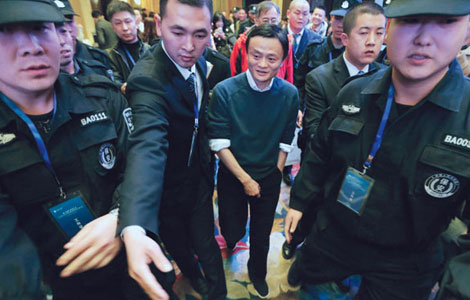
 Jack Ma in running for Time magazine Person of Year
Jack Ma in running for Time magazine Person of Year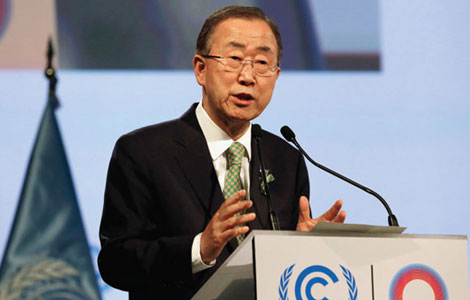
 China: New climate change fund 'market-based'
China: New climate change fund 'market-based'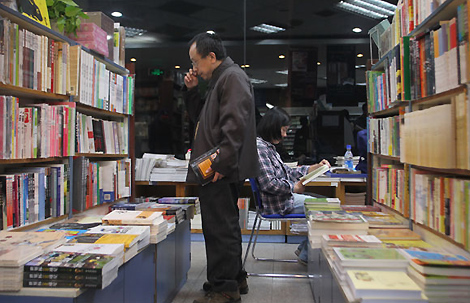
 The best books of 2014
The best books of 2014
 Third panda triplet joins siblings and mother
Third panda triplet joins siblings and mother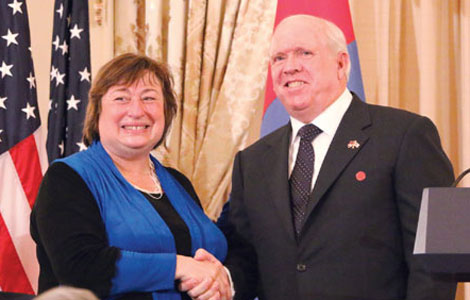
 Linden Center hotel misses award
Linden Center hotel misses award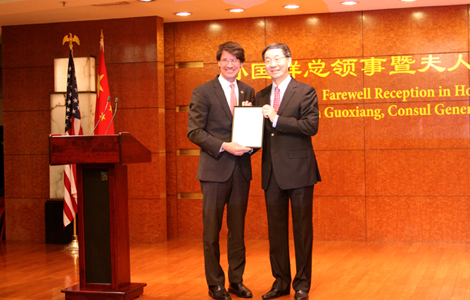
 Diplomat's farewell
Diplomat's farewell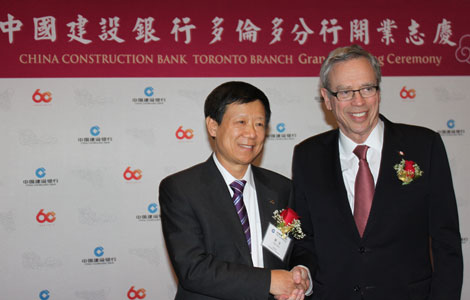
 China Construction Bank Toronto Branch Grand Opening Ceremony
China Construction Bank Toronto Branch Grand Opening Ceremony
Most Viewed
Editor's Picks

|
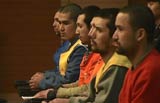
|
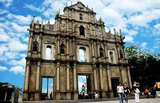
|
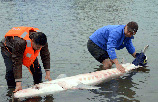
|

|
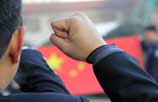
|
Today's Top News
Facebook may need a partner to get into China
BOC adds to China's portfolio of NY property
Watchdog goes online to fight graft
China Construction Bank Toronto Branch Grand Opening Ceremony
China: New climate fund to be 'market-based'
Former senior economic planning official sentenced to life in prison
HK police declare to clear remaining occupy sites
China to advance climate goals
US Weekly

|

|








